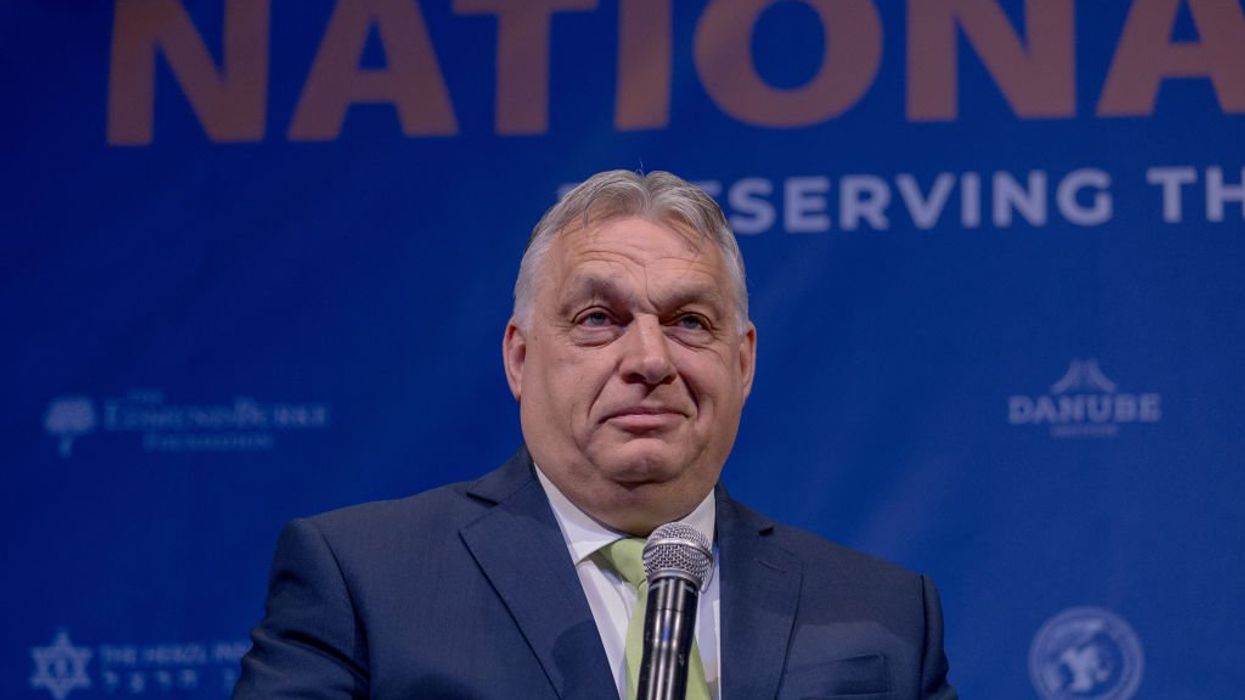© 2024 Blaze Media LLC. All rights reserved.
Amid ISIS Strikes, White House Answers for Junior Varsity Comments About Terrorist Group
August 08, 2014
The Islamic State of Iraq and Syria, or ISIS, does not pose the same threat to Al Quaeda once did, White House press secretary Josh Earnest said Friday. But he said it would be difficult to imagine a stable Iraq with ISIS operating.
 White House press secretary Josh Earnest speaks during the daily news briefing at the White House in Washington, Friday, July 25, 2014. Earnest discussed the Mideast conflict and the crisis at the U.S.-Mexico border. (AP Photo)
White House press secretary Josh Earnest speaks during the daily news briefing at the White House in Washington, Friday, July 25, 2014. Earnest discussed the Mideast conflict and the crisis at the U.S.-Mexico border. (AP Photo)
Of particular interest was a comment President Barack Obama made to the New Yorker magazine published in January, drawing a basketball analogy for the threat posed by ISIS.
“The analogy we use around here sometimes, and I think is accurate, is if a jayvee team puts on Lakers uniforms that doesn't make them Kobe Bryant,” Obama told the New Yorker, referring to ISIS. “I think there is a distinction between the capacity and reach of a bin Laden and a network that is actively planning major terrorist plots against the homeland versus jihadists who are engaged in various local power struggles and disputes, often sectarian.”
Asked if ISIS was still a junior varsity team, Earnest didn't entirely back away from the assertion, saying that ISIS does not pose the same direct threat to the United States as Al Qaeda had.
“There is no question that the Laker uniforms that were worn – to use that analogy a little bit – that were worn by the Al Qaeda in Afghanistan has been decimated and defeated,” Earnest said.
“What is also true is that there are other organizations that subscribe to the violent extremist ideology that's espoused and promulgated by Al Qaeda,” Earnest continued. “Many of those groups in nations across the globe are not particularly sophisticated, are focused on local sectarian conflicts, who don't pose an immediate threat to U.S. interests or the U.S. homeland.
“There are of course a couple of other organizations that do pose a more substantial threat to the United States and our interests,” he said. “Al Qaeda in the Arabian Peninsula is one of them. You've seen the United States in concert with out allies and partners take significant steps, important steps, that do have designs and some capability to try to strike the United States, in some cases even try to strike the homeland.”
Earnest said one goal – in addition to stopping a potential genocide – is protecting American citizens being threatened by ISIS, such as U.S. diplomats in Iraq.
The air strikes launched Friday were done in concert with a humanitarian mission for religious and ethnic minorities facing persecution by ISIS.
Earnest did not have an end date, but assured it would not be a long term commitment.
He further said the administration is committed to abiding by the War Powers Act, which prohibits continued military action beyond 60 days without congressional authorization. The War Powers Act also requires notifying Congress within 48 hours of any action. Earnest said the relevant House and Senate committee members were notified.
While not talking about the extent of U.S. military action, Earnest said could not continue if Iraq is going to be stable. That doesn't mean it's entirely the America's responsibility to stop the threat.
“It's difficult to imagine a scenario where you would have a stable Iraq with a security situation that is under control where ISIL was freely operating in the country side,” Earnest said. “That is why we have worked so closely with the Iraqi government, Iraqi security forces and Kurdish security forces to counter this threat. It is why it is the belief of the United States that it's only the Iraqis who can confront this problem.”
Want to leave a tip?
We answer to you. Help keep our content free of advertisers and big tech censorship by leaving a tip today.
Want to join the conversation?
Already a subscriber?
more stories
Sign up for the Blaze newsletter
By signing up, you agree to our Privacy Policy and Terms of Use, and agree to receive content that may sometimes include advertisements. You may opt out at any time.
© 2024 Blaze Media LLC. All rights reserved.
Get the stories that matter most delivered directly to your inbox.
By signing up, you agree to our Privacy Policy and Terms of Use, and agree to receive content that may sometimes include advertisements. You may opt out at any time.


